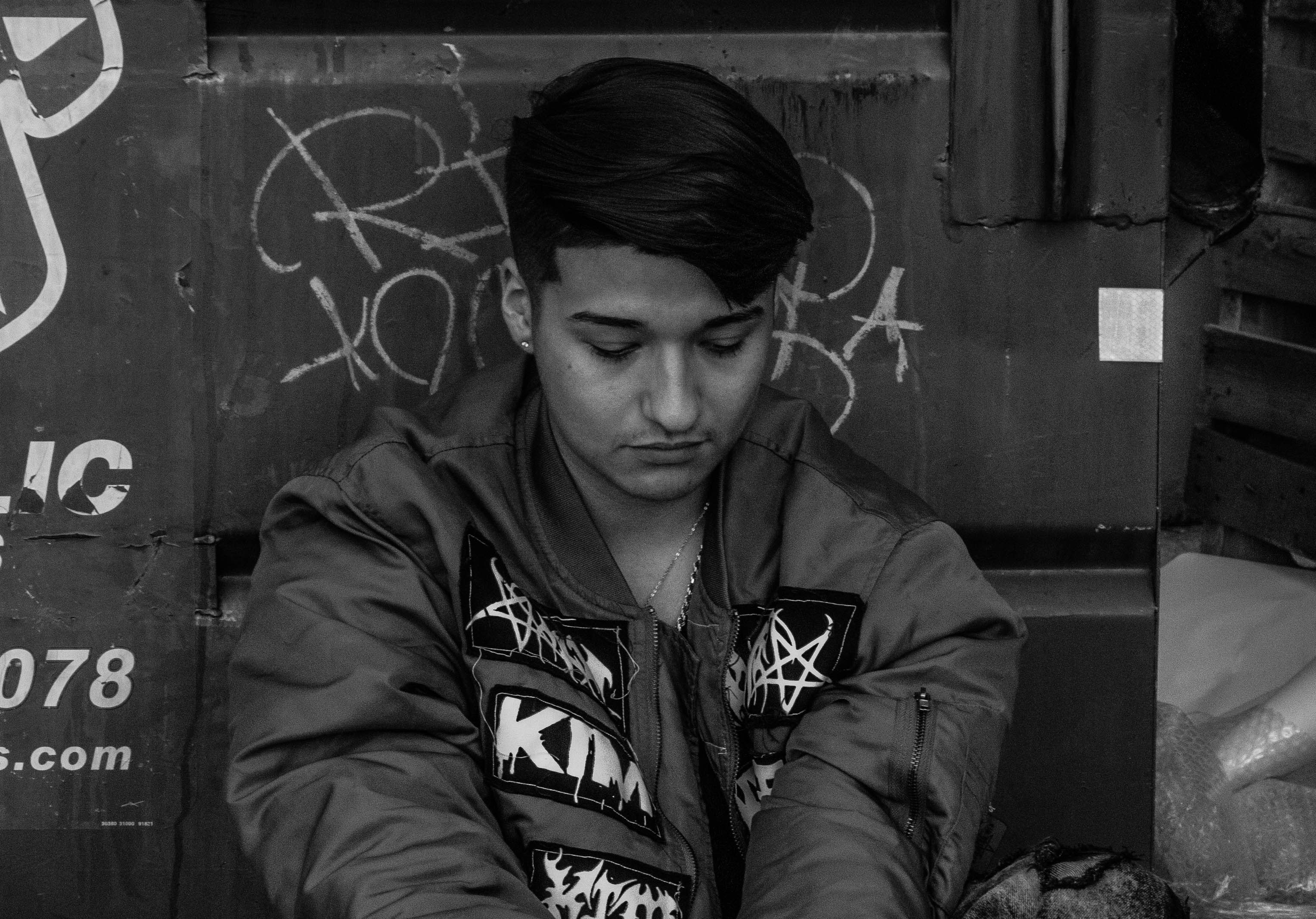Survivor’s guilt is a term often associated with trauma that is a genuine and overwhelming feeling experienced by individuals who have survived a traumatic event when others did not. It’s a subset of PTSD (post-traumatic stress disorder) and can manifest in a variety of ways that deeply impact one’s mental and emotional well-being.
People who suffer from survivor’s guilt often find themselves grappling with persistent thoughts like, “Why them and not me?” or “What could I have done differently to prevent this?” This emotional turmoil can lead to a wide array of symptoms, including shame, emotional numbness, insomnia, isolation, and more.
It’s crucial to understand that these feelings are not just fleeting moments of sadness but can have a profound and long-lasting impact. If you or someone you know is experiencing these symptoms, seeking help is essential. Survivor’s guilt is a component of PTSD, and addressing it can lead to a healthier, more fulfilling life.
What Is Survivor’s Guilt?
In the Diagnostic and Statistical Manual of Mental Disorders, 5th ed (DSM-5), survivor’s guilt is acknowledged as a symptom of PTSD, characterized by distorted feelings of guilt and negative thinking. If you’re grappling with these emotions, you’re not alone, and your feelings are valid. It’s crucial to remember that experiencing guilt after a traumatic event is a normal reaction; however, it doesn’t have to define your everyday life.
Survivor’s guilt is typically diagnosed within the broader context of post-traumatic stress disorder (PTSD). Mental health professionals use standardized diagnostic criteria, such as those outlined in the DSM, to identify PTSD. During this process, they assess various symptoms, including:
- Intrusive thoughts
- Avoidance behaviors
- Negative changes in mood and cognition
- Heightened arousal
Understanding that survivor’s guilt is a natural response to trauma is the first step toward healing. It’s not uncommon for those who have lived through harrowing experiences to carry the weight of guilt, wondering why they survived when others did not. This internal conflict can be overwhelming, leading to emotional and physical symptoms.
What are the Symptoms of Survivor’s Guilt in PTSD?
Survivor’s guilt often manifests through a range of psychological and physical symptoms that overlap with the broader spectrum of PTSD. Common symptoms of survivor’s guilt include:
- Persistent feelings of guilt and remorse over the traumatic event
- Negative beliefs about oneself or the world
- Severe flashbacks
- Irritability
- A heightened state of alertness
- Robotic emotions
- Inability to experience joy
- Insomnia
- Lack of motivation
At its core, survivor’s guilt intertwines with a complicated grief reaction. This means that while you are mourning the loss or trauma, you’re simultaneously wrestling with the guilt of surviving.
Distorted feelings of guilt and pervasive negative thoughts about oneself are not uncommon—often regarded as hallmark symptoms per the DSM.
Common Scenarios Leading to Survivor’s Guilt
Survivor’s guilt often arises in situations involving significant loss or trauma. For example, individuals who have lived through natural disasters like hurricanes, earthquakes, or wildfires may wrestle with intense guilt over surviving while others perished. The same feelings can emerge in those present during acts of terror or mass shootings, where the sudden and unexpected loss of life leaves a lasting emotional impact.
Combat veterans frequently report survivor’s guilt after returning from war zones, haunted by the memories of comrades who didn’t make it back. Similarly, those who survive severe car accidents or medical traumas, such as cancer or life-threatening illnesses, might struggle with why they survived when others in similar situations did not.
Witnessing or experiencing violence, whether in personal relationships or as bystanders to criminal acts, can also trigger these feelings. The trauma of seeing others hurt or killed can leave indelible marks, manifesting as persistent guilt or remorse.
These diverse situations share a common thread: they force individuals to wrestle with existential questions and feelings of responsibility, often beyond their control.
Recognizing the breadth of contexts in which survivor’s guilt can occur is an essential step in understanding and addressing this profound emotional struggle.
Recognizing the Signs: When Survivor’s Guilt Becomes Overwhelming
Recognizing when survivor’s guilt is overwhelming can be crucial for seeking timely help. You might notice an intense guilt and remorse that weighs heavily on you. These feelings are often accompanied by persistent thoughts about the traumatic event, incessantly replaying what could have been done differently. This mental loop can create a pervasive sense of hopelessness, making it difficult to focus on anything else.
Another red flag is a significant shift in your worldview or beliefs about yourself. Survivor’s guilt can lead to negative self-assessment, where you blame yourself for the outcomes others faced and perceive the world as inherently unjust or unsafe. Sometimes, you may find it hard to accept that you deserve to be happy or survive, contributing to a substantial emotional burden.
Social withdrawal is also a common sign. You might start isolating yourself from friends and family because you don’t feel anyone can understand your experience or because you shouldn’t burden others with your feelings. This isolation can exacerbate feelings of loneliness and despair.
If you find yourself slipping into depression or experiencing anxiety more frequently, it’s vital to take these indicators seriously. The emotional toll of survivor’s guilt can be immense. It may manifest as trouble sleeping, losing interest in activities you once enjoyed, or even physical symptoms like headaches and fatigue. Remember, recognizing these signs early can be the first step toward getting your needed support.
Healthy Coping Strategies for Managing Survivor’s Guilt
Managing survivor’s guilt can be challenging, but there are effective strategies to help you navigate these emotions. Acceptance plays a crucial role. Recognize and accept that these feelings are a natural response to trauma. This acknowledgment can be the first step toward healing.
Mindfulness and grounding techniques can also provide relief. Mindfulness practices such as deep breathing, meditation, and yoga help center you in the present moment, reducing the intensity of guilt-ridden thoughts. Grounding techniques, like focusing on your physical surroundings or engaging in activities that require concentration, can further aid in alleviating distress.
- Talking to loved ones: Sharing your feelings with those you trust can offer significant emotional support. Verbalizing your thoughts can make them feel less burdensome and help you gain perspective.
- Support groups or therapy: Engaging with others who have experienced similar trauma or seeking professional help can be immensely beneficial. Therapists trained in cognitive behavioral therapy (CBT) can assist in addressing and reducing rumination, which is often a key aspect of survivor’s guilt.
- Engage in positive activities: Finding new hobbies or revisiting old ones that you enjoy can bring positivity into your life. These activities distract you from negative thoughts and help build new, positive associations with survival.
Additionally, it is helpful to address any underlying negative beliefs you may have. Survivor’s guilt can often stem from thoughts about what you should have done differently or feelings of worthlessness. Working on changing these cognitive distortions through methods such as CBT can lead to healthier beliefs about yourself and your experiences.
Remember, it’s okay to seek help. Whether it’s from friends, family, or professionals, you don’t have to go through this alone. Those who know how to help with survivor’s guilt are best – choose positive people. Surrounding yourself with a supportive network can make a significant difference in managing survivor’s guilt and fostering a pathway to recovery.
The Importance of Seeking Professional Help
Survivor’s guilt treatment is a wonderful option to help ease the burden of trauma. Finding effective ways to cope with survivor’s guilt is crucial. Instead of punishing yourself for making it through, try reframing your survival as a gift, one you can pay forward with gratitude and kindness toward others. Doing what you can to support loved ones can add meaning and purpose to your life.
Turning your focus outward might involve volunteering with community organizations, sharing your story to inspire others, or simply being there for someone who needs a listening ear. These acts of kindness help others and can aid your healing by fostering a sense of connection and purpose.
Remember, you’re not alone in this journey. Connecting with others who have experienced similar situations through support groups can provide a sense of solidarity and understanding. These shared experiences often create an invaluable support network, reminding you that your feelings are valid and that healing is possible.
If you or a loved one is struggling with addiction, Mountainside can help.
Click here or call (888) 833-4676 to speak with one of our addiction treatment experts.

 By
By 







